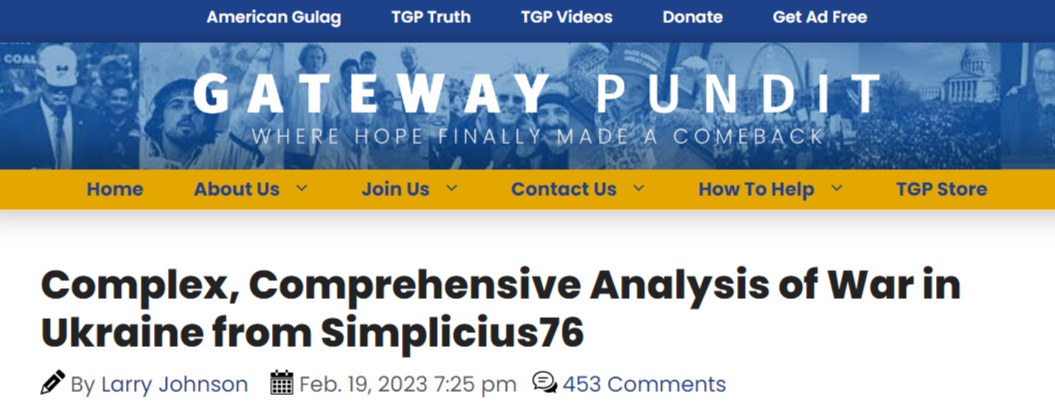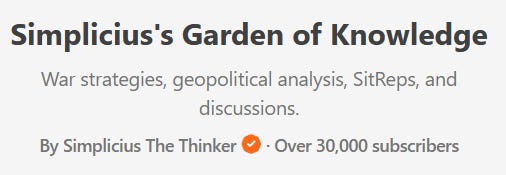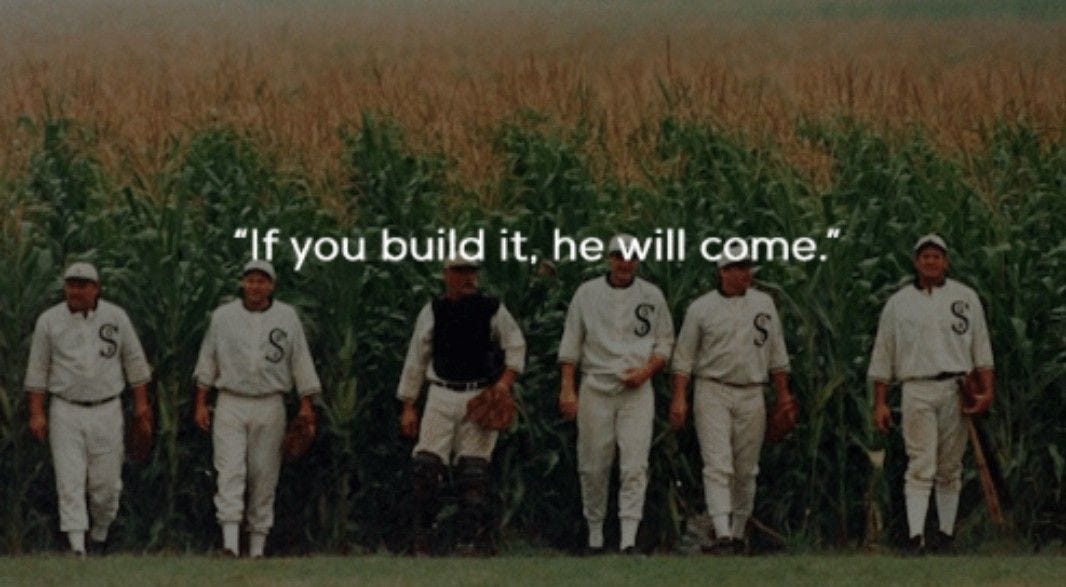Well, folks, it’s time for another milestone—the big three oh:
After hitting 30,000 subscribers, I think it’s safe to say I’m doing something right when it comes to writing here in this dusty ol’ corner of the Dead Internet.
This current milestone happens to come roughly a year after I’ve started, and so feels particularly momentous. I’ve had a year’s worth of time now to read other writers and reflect, compare and contrast, and develop my own ideas as to what I think they’re doing right or wrong. And since I noticed that my audience has many fellow writers or aspiring ones among them, I felt for this occasion it may be helpful to offer a small writing guide.
Contrary to what some might think, my rapid growth is not merely the result of the pure chance or luck of an indifferent or oblivious author. Those here from the start may recall my sometimes overly fussy struggle to constantly fine-tune and adjust my content to better suit audience expectations. This initially manifested in every early article having a poll, or sometimes even several, querying whether the article was too short, too long, had too many pictures or media attached, etc.; I strove to get a bead on the audience’s preferences and predilections—and contrary to what some might think, many or most of the suggestions were taken to heart.
So, with that said, a small primer:
Trust your audience…to a degree
The first important point: tirelessly strive to perfect or improve your offerings. Don’t settle for merely assuming you instinctively know best right from the start, but allow your audience to inform you of your periodic excesses. One of the problems in our daily world is the sheer number of people suffering from various stages of Dunning-Kruger, always assuming they know best, or oblivious to all advice because they consider themselves a kind of exceptional auteur or visionary. You don’t have to always listen to your audience, or rather: you should listen but not necessarily take action on everything. Use your judgment—if a wide variety of people are complaining about the same exact thing, then it’s time to take a look. A single grump disagreeing with your font choice can probably be safely ignored.
Don’t be too quick to monetize and commodify
I see people jumping to paywall their articles or even selling “merch”. I think it a mistake to start monetizing before you’ve truly built a solid following. I’m a bit of an outlier but I’ve put off paywalling for a very long time: only half a dozen or so articles paywalled out of nearly 250 total.
If your audience is still small, all of your focus should be on growing your general—which means free—readership, not on eking out a few red cents from the few followers you do have. That means focus on quality content, good information and writing, and your money and following will eventually come. People shoot themselves in the foot by trying to ‘cash in’ too quickly and alienating their small early audience.
The corollary to this is don’t be too aggressive or coercive in your marketing: it’s a huge turn off. I’m talking about things like slapping one of these after every paragraph in your article:
Some of the most successful writers in this field operate with a light touch. Bernhard from MoA, for example, famously requests donations only twice a year or so and retains a very loyal following.
Don’t flagellate your audience
There are a few writers in this field known for their unhinged level of neuroticism and even open loathing for their own audience, particularly their ‘Free Subscribers’. You may even know the ones I refer to.
This dovetails with ego—which is another obvious cardinal sin. There are many egotistical personalities, which range from self-possessed God Complexes to excessive flaunting of intellect or “correct predictions” (all while ignoring the innumerable totally failed ones, naturally).
It’s really simple: have some humility.
Some authors can pull off an ego if it translates into scintillating or humorously engaging prose which isn’t aimed at scathing its own audience, or is done as a kind of gag and tempered by bouts of self-deprecation. But few of the mentioned writers have such positive qualities in their writing to offset the egomaniacal flights that weigh down their growth like millstones.
Cultivate a community
The more ‘flourishing’ of a community you can cultivate the healthier your growth will be. Some readers are bad seeds who alienate the good, well-adjusted subscribers with their toxic attitude, leaving only an audience full of other misanthropic or otherwise ‘low quality’ people. Like weeds in a garden, they can only engender more of their own kind, and will not facilitate the influx of the “good kinds” of readers.
Like a gardener, take care to prune and hedge your growing creation, sometimes snipping out the rotten apples that can ruin the whole batch with their festering toxicity. Free speech is nice, but even nicer is a space that feels homely for people, and which actively promotes the patronage of the good kinds of readers who share helpful and insightful outside material or quality comments, which are constructive, elucidating, edifying, etc.
The more of those kinds of people you turn away with bad antics, the more of the darker ‘weeds’ you will welcome to sprout unrestrained, who will turn your comments section into a boggy cesspool—and not the cool kind, with the porcelain beauty floating among still lotuses—which will eventually drive away new readership altogether and leave your entire imprint or ‘brand’ reeking of a radioactive odor.
Build relationships
A corollary of the above is to build relationships and networks with fellow colleagues in your field. This can only be done if you’re not a toxic or egotistical personality who criticizes and ridicules your coevals.
You know when my blog really first meteorically took off? When
reposted an article of mine on his Sonar21 page when I was just starting out, and that was picked up by the Gateway Pundit:
This led to a cascade of exposure, which followed with Mercouris and others picking up and discussing my work. That’s not to mention the earlier Saker connection, which is all to say that: the more you interact and network with other established or well-known colleagues, the bigger your chances of a breakthrough.
I can name half a dozen “cliques” on Substack alone that I know of, where writers have formed a sort of community after befriending each other in their mutual comments sections. They then repost or help promote each other’s work, and often the smaller writer is vastly boosted in visibility. The same happens on Twitter and elsewhere.
This is not a call to schmooze and try to network by disingenuously using people for a leg up, but rather to get genuinely interested and involved in the work and community of some of your other colleagues.
Somewhat contradictorily, I actually consider myself more of a lone wolf for the sake of not wanting to create too much of an echo chamber; groups which are too closely knit often inadvertantly become uniform in their views and perceptions, and I want to remain unadulterated by the ideologies of others, even if I’m friendly with them. However, I still give them a positive word from time to time and stay cordial—even that’s a big difference from becoming toxically insular like some of the well-known bad personalities who’ve cut their brand off from any growth by becoming pariahs.
In summary: the more friendly, open, and professional you are, and the more you interact with others in your field/genre, the further you will likely go. I see some fairly good writers from time to time who strike almost all the other points listed here, yet it puzzles even me why they don’t have a wider readership. Then I check out their ‘presence’ on the wider internet, and it’s often quite paltry. They don’t promote their work or attempt to cross-pollinate or interact with others of their ilk, and live in a sort of self-made cocoon.
I myself built up a Twitter and other media accounts for the sole purpose of gaining a wider audience for this very blog. Sure, it’s a lot of work, but it has also paid very noticeable dividends in getting my work shared and more widely read.
Work seriously
This assumes you want to actually make it a career, or some reasonable monetary gain from it. If that’s the case, treat the work as you would any other real profession. That means not simply scribbling something down on the odd day the ‘mood’ happens to strike you, but rather seriously thinking about your topics, researching them, planning articles in advance and actually putting consideration into your publishing schedule to create consistency.
At times I’ve had an entire calender written out with articles pre-scheduled up to two weeks in advance, so that I know precisely when things should be releasing, when there will be lacunae into which I can insert a piece, etc. I strive to give people time to digest a piece before releasing another, but reaching a fine balance between that and waiting too long before the next one.
One of the most well known adages for ‘content creators’ is that consistency and output is the single most crucial arbiter of success. That doesn’t mean quantity over quality, but you have to establish a certain tempo and keep at it. Consistency fosters routine in your audience, which keeps them coming back. When you create a schedule that can be counted on by the audience, they end up working your content into their daily habits, creating a sort of automatic response of consuming your content with their morning coffee, or as a nightly read, etc. It becomes a kind of stable, reliable ‘comfort’ in their life, like watching your favorite nightly show at the same time each evening.
The comfort zone
One of the big secrets of this field—and other related ones I’m sure—is that a much larger portion of the readership than you might expect very nearly doesn’t even care about the content itself. They “keep coming back” to their favored creators for other reasons:
They enjoy the mood or vibe of comfort the content creator evokes with their work, almost as an ASMR-like experience.
They enjoy their creative ‘voice’ or style. It’s nourishing for them to read the writer’s particular style of prose and the personality it evokes off the page. It may simply titillate, entertain, fascinate, or otherwise give them pleasure in some shape or form to merely read as a purely visceral or cerebral engagement.
They enjoy the ‘community’ more than the content itself, per se. Much of MoA’s readership famously frequents the site for its vibrant comments section, as an example.
They get attached to the creator’s ‘persona’ itself, and simply like partaking in it no matter what the creator is writing or talking about. This applies more to Youtube personalities; for instance, people like Alexander Mercouris, who many enjoy watching because he may give off a certain kind of friendly or charmingly British vibe.
Thus it’s good to cultivate a style or persona which is not off-putting or standoffish in one of the ways described earlier, but rather creates subtle ease, relaxation, or engagement for the reader.
A sense of style
One of the ways to do that is to avoid writing in an overly dry style that feels like an A.I. script. In practice this could mean sometimes winging rhetorical questions—which makes the audience feel you’re directly addressing them—showing some “personality” and flair, or being otherwise funny or creative if you have a knack for it.
A lot of the writing I see, from otherwise very informed authors, never takes off because of its god-awfully pedantic, dry, dull, unengaging, or outright boring style. The writers I myself find most compelling to read all seem to have a certain engaging tone, a little personality injected into the prose, whether it’s quippy, irreverent, ironic, or filled with emotive language. Here’s one example off the top of my head: https://substack.com/@wmbriggs
Inject some variation into your lifeless prose by using occasional italics, bold, exclamations!, play with the formatting, making sure your paragraphs aren’t always giant eye-straining walls of text, etc.
The content itself
This is the most important thing, after all, isn’t it?
There’s obviously a huge over-saturation of voices vying for the same eyeballs and most writers are simply rehashing the same tired Twitter/Telegram spiels to keep anyone’s interest. To truly garner an audience you must stand out by consistently delivering freshly unique and novel observations, takes, analyses, etc.
A big mistake many make is assuming their audience doesn’t consume most of the same social media information as they do. So the writers will post pictures, videos, and updates that everyone and their grandmother has already seen without much original observation.
The fact is, the readership is usually just as if not more well-read than the writer, and follows all the same accounts, publications, etc. But they still come to the writer not to view copy-pasted media or quotes they’ve already seen, but rather to get a novel analysis or take on the situation. They may see the same things you do, but may not be able to put the pieces together, which is your job as writer. The successful writer is one who can consistently weave that tapestry together into new uncovered breakthroughs and insights about ongoing events.
Mental and physical health
It may sound cliche, but get proper rest. Good writing is nearly impossible to get done when mentally fatigued. I find it far easier to do hard manual labor when tired, because your mind sort of goes into autopilot and your body and adrenaline take over. But trying to write when you haven’t gotten proper sleep is nigh impossible, as your mental synapses feel sluggish and your thoughts foggy, making it difficult to connect the dots, find the right words, concentrate, etc.
Many people live the irresponsibly diffusive Hunter S. Thompson lifestyle, sleeping at odd hours, banking on stimulants (whether coffee, cigarettes, drugs, etc.) to give them brief spurts of wakefulness and productivity. For the rare few it might work—but for the vast majority, you’ll find creating good writing is impossible if you’re not rested and properly fueled up.
Even when fully rested, I find there’s only a narrow window of peak mental activity each day, that lasts for maybe 2-3 hours, where I can get the vast majority of the best and most quality work done. The rest of the hours are often a sort of ebbing decline, more useful for reading, research, editing, rather than intense focused output. Learn your body’s Circadian and other ‘rhythms’ of this sort and try to maximize them, not allowing yourself to be interrupted during ‘golden time’.
Well, that’s all for now. Maybe some out there will find this small guide useful, or at least entertaining. I could always do more in the future, if there’s interest. I originally wanted to include a more indepth style guide as to writing cleanly and effectively at the basic sentence and prose level, but figured it would be too much.
Another small item I wanted to share is many of you have taken that ‘survey’ I put up last time. It’s a survey Substack themselves generated and offered for me to use, so I figured why not. I only mention that because some of the anonymous comments got a little snippy at some of the questions—but alas, I didn’t make the questions up, and to be honest was only interested in the one about the age ranges out of curiosity. And I’m with you on that, anyway—I too hate invasive survey questions; but whoever wrote BMP-2 on their gender/sex did win a guffaw or two from me.
So with that said, the interesting conclusion is that the vast majority of the audience is much older even than I expected. The single largest age group is actually the 65-75; so if you’re in that group, consider yourself in good company. In general more than 80% are 45 years old or above. I suppose that’s a good thing to the extent that it means I’ve attracted a largely more experienced, perhaps cultured and highbrow audience, which is likely fed up from a lifetime of MSM lies. But it would still be nice to pump up those younger numbers and even things out a bit as well, as the disparity is pretty steep. That said, it does explain the much more mature and well-mannered comments section than I expected to have. Sure, there’s still plenty of quibbling but I had expected to be forced into doing much more moderation than I ended up needing to, as most people remain civil and constructive in their interactions.
—
As a last note, every 10k growth jump I’ve been copying over my subscribers email list to my second publication. That’s because most new subscribers aren’t aware I have a second newsletter as Substack makes it a little difficult to find. However, unfortunately due to the way I have to transfer them over, it will cause any people who may have unsubscribed from my second newsletter to again be resubscribed to it. If that’s you, I apologize, I will only do this re-subscription once every 10k followers, which is basically once or twice a year from now on. So feel free to just unsubscribe from the second newsletter again if you aren’t interested in that, and sorry for the inconvenience. But I post there only twice a month at the moment, so you will not be inundated with emails from it either way.
—
Well, we’ve now reached 30k and the growth remains strong thanks to all your patronage and support. Onward and upward we go toward 40k. Stay tuned for the next report as we get back to our regularly scheduled programming, as well as an upcoming paid special covering another very interesting Russian military thinktank release, which makes some startling admissions about the state of Russia’s military at the beginning of the war, and what changes are being made.
Also, as a parting milestone gift, I will honor the request of unlocking this most recent paid article for free—at least for a while—so if you haven’t read it yet, be sure to dig in as the information is still highly relevant:
And consider becoming a paid subscriber as there are some exciting new paid articles coming up.
Your support is invaluable. If you enjoyed the read, I would greatly appreciate if you subscribed to a monthly/yearly pledge to support my work, so that I may continue providing you with detailed, incisive reports like this one.
Alternatively, you can tip here: Tip Jar









Congrats and best of luck on a hypersonic arrival to the next milestone!
And when you can, please update us on the partisan activity behind Ukrainian lines - no mention of this ANYWHERE…
S, hands-down you're providing the best analysis of this war. I believe it was from the Saker that I found your work.
As for expanding into other topics, I'll caveat my "yes" vote as other topics relating to this war, especially economic ones. The economic war is such a vital part of this conflict that exploring it seems worthwhile.
Anyways, congratulations! Thank you for all your hard work and dedication.